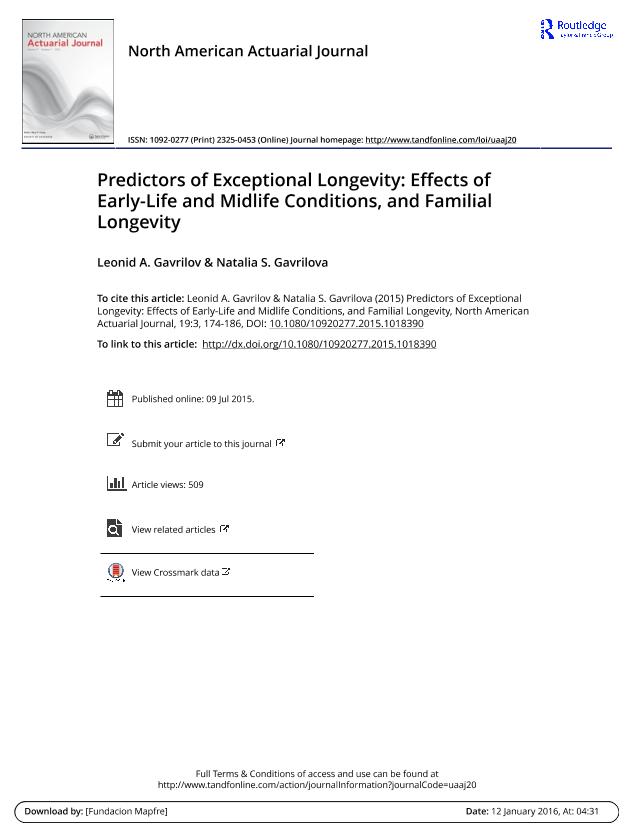Other categories: 341
Predictors of exceptional longevity : effects of early-life and midlife conditions, and familial longevity

Contenido multimedia no disponible por derechos de autor o por acceso restringido. Contacte con la institución para más información.
Other categories: 341

